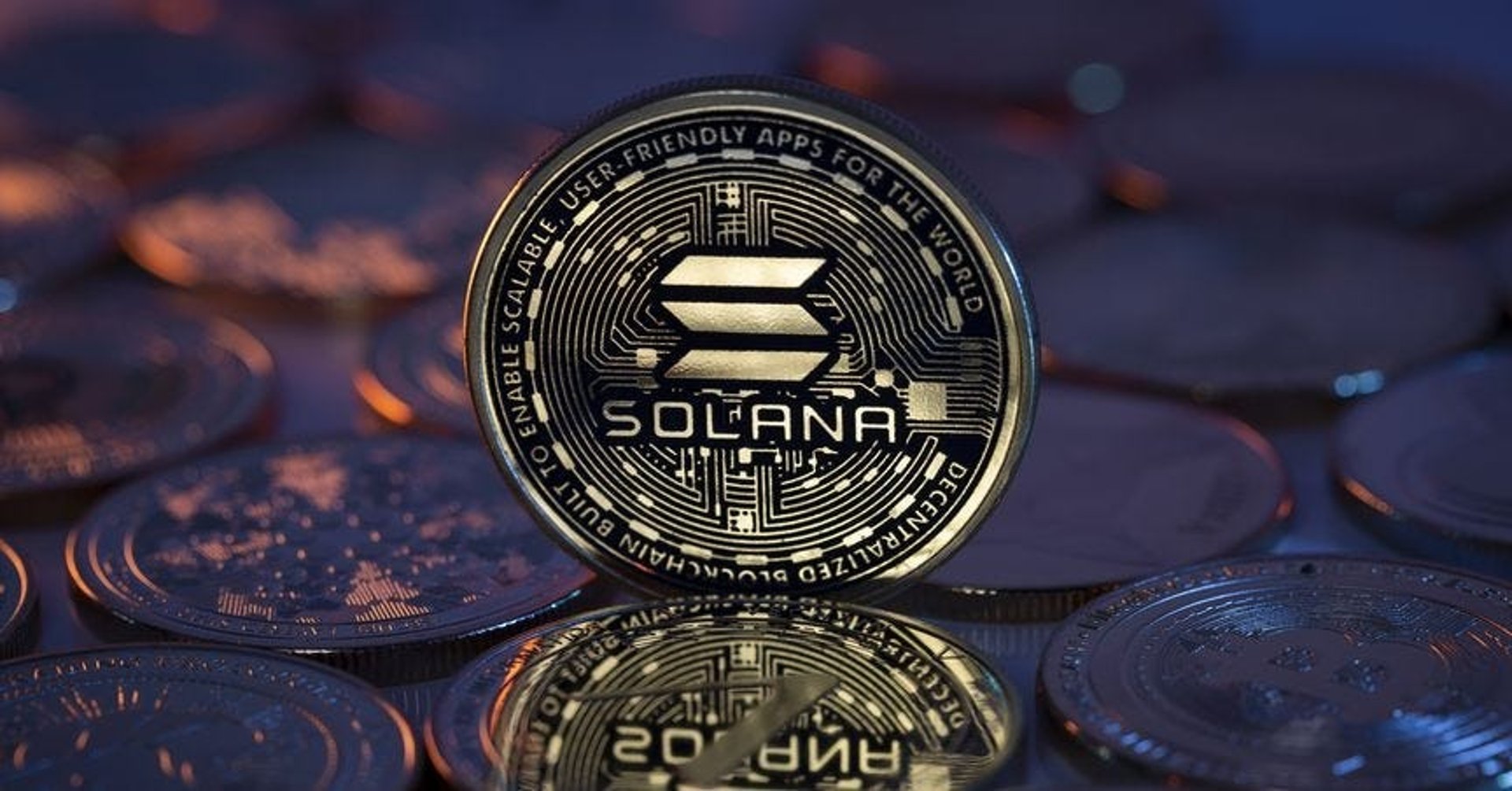
Solana (SOL): A High-Speed and Low-Cost Blockchain for the Crypto World
(SOL)
9/9/20234 min read
Solana (SOL): A High-Speed and Low-Cost Blockchain for the Crypto World
In the fascinating world of cryptocurrencies, one platform has rapidly gained recognition for its scalability and performance. Solana (SOL) is a high-speed and low-cost blockchain that has stood out in the crypto ecosystem.
Scalability and Efficiency
Built on a Proof of Stake (PoS) consensus mechanism, Solana achieves speeds of up to 65,000 transactions per second, significantly surpassing many other blockchains. Its unique architecture and efficient scaling have positioned it as a promising choice for decentralized applications (dApps) and decentralized finance (DeFi) services.
The combination of Solana's scalability and low transaction fees has attracted developers and projects to the ecosystem, driving its growth and adoption in the cryptocurrency market.
Solana is in Small Cryptos to invest in 2023 for their growth potential in 2024 and 2025 bull market.
Key Facts about Solana (SOL)
High Transaction Speed: Solana is known for its incredible scalability and speed, processing up to 65,000 transactions per second, making it one of the fastest blockchains in the crypto ecosystem.
Low Cost: Despite its high speed, Solana maintains low transaction fees compared to other blockchains, making it more attractive to users and developers.
Unique Architecture: Solana uses a Proof of Stake (PoS) consensus mechanism combined with a Proof of History (PoH) approach, enabling greater efficiency and performance on its network.
Adoption and Growth: Solana's scalability and efficiency have attracted numerous projects and developers, propelling its growth and adoption in the DeFi ecosystem and decentralized applications (dApps).
A Brief History of Solana (SOL)
The story of Solana (SOL) begins in 2017 when it was conceived by Anatoly Yakovenko. In 2018, Yakovenko founded Solana Labs to develop the platform.
In 2020, Solana's mainnet was launched, allowing users to transact with SOL, its native cryptocurrency. Throughout the year, Solana gained recognition in the crypto ecosystem for its high speed and low transaction costs.
In 2021, Solana experienced significant growth, attracting numerous projects and developers to its network. Additionally, it became a major ecosystem for dApps and DeFi services.
As of the cutoff date in September 2021, Solana has continued to evolve and expand, positioning itself as a promising blockchain platform in the cryptocurrency market.
Technical Features of Solana (SOL)
Solana (SOL) stands out for its innovative technical features. Its unique architecture is based on a combination of Proof of Stake (PoS) consensus and Proof of History (PoH). This combination allows for high processing speeds of up to 65,000 transactions per second, surpassing many other blockchains.
Additionally, Solana utilizes a parallel transaction validation approach, enhancing network efficiency and scalability. Its Proof of History (PoH) consensus protocol provides a timeproof mechanism that facilitates event sequence verification.
Another relevant technical feature of Solana is its ability to execute smart contracts compatible with the Rust programming language. This versatility enables developers to create high-performance and low-latency dApps and DeFi services. Together, these technical features make Solana a blockchain platform with significant potential in the crypto ecosystem.
Pros and Cons of Solana (SOL)
Pros of Solana (SOL):
High Speed: Solana is one of the fastest blockchains in the crypto ecosystem, capable of processing up to 65,000 transactions per second, making it ideal for high-performance applications and DeFi.
Efficient Scalability: Its parallel validation and Proof of History (PoH) approach enable greater efficiency and scalability, facilitating network growth and adoption.
Low Costs: Despite its high speed, Solana maintains low transaction fees, making it an attractive option for users and developers.
Cons of Solana (SOL):
Potential Centralization: Some critics have pointed out that the concentration of validating nodes could pose centralization issues in the future.
Ongoing Development: Solana is a relatively new platform, and its development and functionalities are constantly evolving, requiring time for stabilization.
Market Competition: Despite its technical advantages, Solana competes with other established and emerging blockchains also seeking to improve scalability and efficiency, presenting challenges in market positioning and adoption.
In summary, Solana offers advantages in speed, scalability, and low costs, but faces challenges in potential centralization, ongoing development, and market competition. As with any investment, it's essential to carefully consider these pros and cons before engaging with Solana.
Uses of Solana (SOL)
Solana (SOL) is a high-performance blockchain platform that provides fast transaction speeds and low costs. One of the ways Solana can be used is for creating dApps that require high processing capacity and rapid response times. Developers can leverage Solana's scalability and efficiency to build dApps in sectors such as online gaming, decentralized finance (DeFi), and digital asset management.
Future Use Projections
In the future, Solana is expected to continue gaining relevance in the crypto space due to its focus on performance and scalability. With increased adoption, Solana could become a preferred platform for asset tokenization and the creation of decentralized markets. For instance, Solana could enable the tokenization of real-world assets like real estate and artwork, providing investors with greater accessibility and liquidity in these markets.
Additionally, with the growing popularity of DeFi, Solana is projected to play a significant role in this space. It can be utilized to implement advanced DeFi protocols, such as lending, exchanges, and yield farming, offering users a faster and more cost-effective DeFi experience. In summary, Solana shows promising projections to expand its use in decentralized applications and strengthen its position as a competitive blockchain platform in the future.
More Information and How to Buy Solana (SOL)
Solana (SOL) is a cryptocurrency that has gained recognition due to its high-performance and low-latency blockchain. If you're considering investing in cryptocurrencies, Solana could be an option worth considering. Get more information and conduct transactions on the Binance exchange. Always remember to thoroughly research and analyze any investment before making financial decisions. Click the Binance exchange link for more details.

